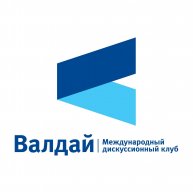The 80th Anniversary of the Yalta Conference. An Expert Discussion
On February 12, the Valdai Club hosted an expert discussion dedicated to the 80th anniversary of the Yalta Conference. The results of the negotiations between the three Allied powers — Britain, the USSR, and the USA — still serve as the basis of the modern international order. It was at the Yalta Conference that the final decision was made to create the UN — the main institution of the world community. “Yalta” remains a symbol of the agreements that helped maintain a relatively stable peace. In today’s conditions, a literal repetition of the experience of that conference is hardly possible: the world is too diverse, and the balance of power must take into account a significantly larger number of powers and different types of forces. However, the main principle of the conference — the recognition that a world based on a balance of interests is better than a chaotic war for their implementation — remains relevant in an era when the crisis of the world order is beyond doubt. What was the significance of the Yalta Conference against the backdrop of the historical events of the first half of the 20th century? How strong was the peace created in Yalta? How has the advent of the atomic age affected it? What can be used from the Yalta experience now, given the changes in the global balance of power and the dramatic experience of Europe after the Cold War? The participants in the discussion will try to answer these and other questions. Speakers: Christian Whiton, Senior Fellow for Strategy and Trade at the Center for the National Interest (USA) Richard Sakwa, Professor of Russian and European Politics at the University of Kent in Canterbury (UK) Rein Müllerson, President, Institut de Droit International in Geneva (2013–2015) Moderator: Timofei Bordachev, Programme Director of the Valdai Discussion Club, Professor at the National Research University Higher School of Economics
On February 12, the Valdai Club hosted an expert discussion dedicated to the 80th anniversary of the Yalta Conference. The results of the negotiations between the three Allied powers — Britain, the USSR, and the USA — still serve as the basis of the modern international order. It was at the Yalta Conference that the final decision was made to create the UN — the main institution of the world community. “Yalta” remains a symbol of the agreements that helped maintain a relatively stable peace. In today’s conditions, a literal repetition of the experience of that conference is hardly possible: the world is too diverse, and the balance of power must take into account a significantly larger number of powers and different types of forces. However, the main principle of the conference — the recognition that a world based on a balance of interests is better than a chaotic war for their implementation — remains relevant in an era when the crisis of the world order is beyond doubt. What was the significance of the Yalta Conference against the backdrop of the historical events of the first half of the 20th century? How strong was the peace created in Yalta? How has the advent of the atomic age affected it? What can be used from the Yalta experience now, given the changes in the global balance of power and the dramatic experience of Europe after the Cold War? The participants in the discussion will try to answer these and other questions. Speakers: Christian Whiton, Senior Fellow for Strategy and Trade at the Center for the National Interest (USA) Richard Sakwa, Professor of Russian and European Politics at the University of Kent in Canterbury (UK) Rein Müllerson, President, Institut de Droit International in Geneva (2013–2015) Moderator: Timofei Bordachev, Programme Director of the Valdai Discussion Club, Professor at the National Research University Higher School of Economics
